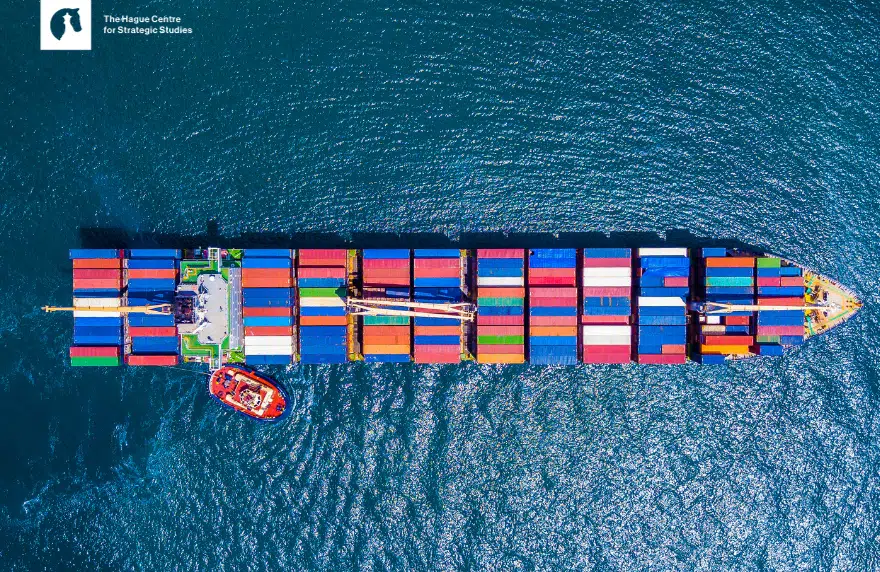Research
How secure is European maritime trade with the Indo-Pacific? Sea lines of communication between the two regions pass through several chokepoints. This new HCSS report by Benedetta Girardi, Paul van Hooft and Giovanni Cisco traces their role in global supply chains, and offers practical recommendations to enhance maritime security.
The Indo-Pacific, which is home to several large, growing economies, is an increasingly vital region for European trade. Disruptions in trade, most likely along key chokepoints, would have dire consequences. Currently, it is not clear how Europe can best protect its economic interests in the Indo-Pacific. This report therefore does the following:
- First, it analyses the economic value of the maritime routes to identify where Europeans should concentrate their maritime security efforts;
- Second, it assesses the geopolitical and security risks that threaten open and secure passage through chokepoints;
- Third, it discusses alternatives to critical chokepoints;
- And finally, it draws conclusions on concrete actions that should be taken by policy-makers.
Investigating great power rivalries, littoral rivalries, maritime disputes, internal instability, piracy and armed robbery, terrorism, and climate security, the report demonstrates that different areas of the Indo-Pacific face different threats. While the Western part is particularly at risk from littoral rivalries and internal instability, the Eastern part mainly faces great power rivalries and climate hazards.
In the face of resource constraints in their naval capabilities, European states should thus tailor their policies to these varying demands. This should form the foundation for involvement in multilateral, minilateral and bilateral settings.
The report is published by the HCSS Europe and the Indo-Pacific Hub (EIPH), and part of the series Guarding the Maritime Commons.
Authors: Benedetta Girardi, Paul van Hooft, Giovanni Cisco. With contributions by Alisa Hoenig.
The research for and production of this report has been conducted within the PROGRESS research framework agreement. Responsibility for the contents and for the opinions expressed, rests solely with the authors and does not constitute, nor should be construed as, an endorsement by the Netherlands Ministries of Foreign Affairs and Defense.






